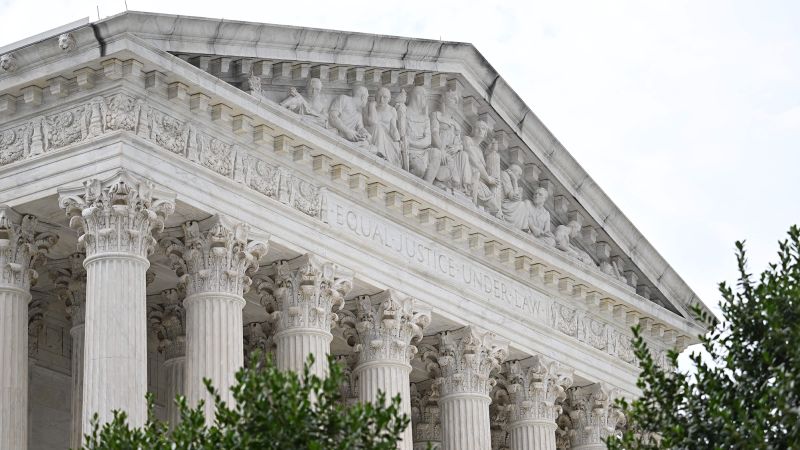The Supreme Court on Tuesday rejected an emergency bid from Republican election officials in a Pennsylvania county to freeze sanctions related to a dispute about voting equipment and the 2020 election.
The case involves actions taken by two of three Fulton County, Pennsylvania, Commissioners – Stuart Ulsh and Randy Bunch – who sought to have Dominion voting equipment examined by a third party after the 2020 election. They claimed they did so to consider whether to continue to use the voting machines.
Multiple outside firms were ultimately given unauthorized access to voting systems in Fulton County after the 2020 election without authorization from the Board of Elections, according to court filings in the special master probe. The third county commissioner only learned that an outside firm had been allowed to inspect the election equipment until after it was done, court filings show.
One of the cyber forensics firms that examined and copied components of Fulton County’s Dominion voting system – Wake TSI – was hired by Defending the Republic, a non-profit founded by former Trump lawyer Sidney Powell, according to an invoice from December 2020. Powell has not responded to CNN’s request for comment.
None of the third party groups granted access to the voting systems in Fulton County were contracted by the county itself or had the proper accreditation to carry out such an inspection, according to court records.
In July 2021, upon learning of the inspection, the secretary of the commonwealth argued that the inspection itself had compromised the integrity of the equipment by undermining chain of custody requirements and access limitations necessary to prevent tampering.
The state secretary issued a directive barring county boards of elections from providing access to third parties seeking to examine state-certified voting systems. The directive provided for the revocation of funding from counties whose machines had been decertified under the directive and stated that Pennsylvania would not reimburse any cost of replacement voting equipment that had to be withdrawn.
The commissioners and their lawyers then launched legal proceedings.
During the proceedings, the state secretary learned that Fulton County intended to allow another entity, Envoy Sage LLC, to inspect the equipment. The secretary sought and received a protective order from the Pennsylvania Supreme Court barring such an inspection. In January 2022, the Pennsylvania Supreme Court entered the protective order.
In April 2022, the commissioners determined by a 2-1 vote to appoint a new attorney to represent them on past election matters: Stefanie Lambert. The two commissioners who voted in favor of installing Lambert were Ulsh and Bush.
Lambert, a pro-Trump lawyer with ties to Powell, is involved in a similar lawsuit alleging she helped coordinate and fund voting system breaches in multiple states – including Pennsylvania. Lambert is also facing criminal charges in Michigan related to her involvement in an alleged conspiracy to seize voting equipment there. She has pleaded not guilty and denied any wrongdoing.
Months after the Pennsylvania Supreme Court entered the protective order, the commissioners allowed another party – Speckin Forensics – to inspect the voting equipment without the knowledge of the state, according to court papers. After the completion of that report, the county moved to sue Dominion, arguing that the machines were not fit for their intended use and purpose.
When Pennsylvania state officials brought the action to the attention of the Pennsylvania Supreme Court, the court issued sanctions. It ordered the county officials to pay attorney’s fees and referred their attorney Thomas Carroll to Pennsylvania’s attorney disciplinary board. The court also ordered the Dominion voting equipment to be placed in the custody of a neutral agent.
The commissioners had asked the US Supreme Court to freeze those sanctions while the justices considered whether to take up the commissioners’ appeal. The court rejected the request. No dissents were noted in the court’s order.
Read the full article here




